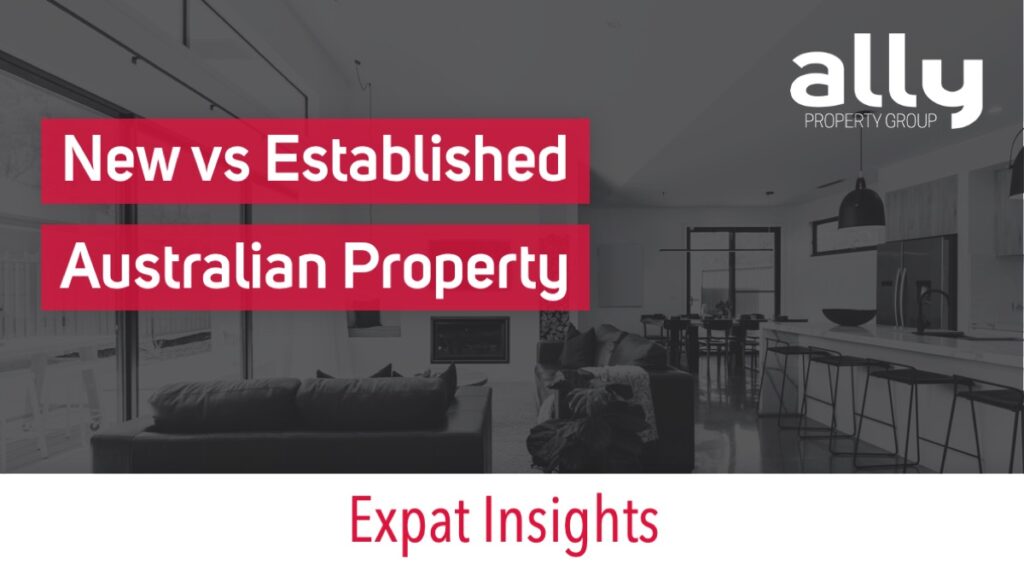Commercial Property vs Residential Property Investing - Pros & Cons
Welcome to the world of investing in Australian real estate! If you're an Australian expat eyeing real estate as a means to secure passive or retirement income, you've probably pondered the age-old question: should you invest in commercial or residential property?
In this comprehensive guide, we’ll delve deep into the heart of this query, unravelling the pros and cons of each sector, and outline for you which of the two options may be your ideal starting point, and importantly, the risks associated with each.
Understanding Commercial Property Investments
Firstly, let’s talk about commercial property. This includes a variety of spaces – think retail shops, office buildings, industrial warehouses, and even large apartment complexes. It’s a vast domain, each with its own set of rules and returns.
The Potential Benefits
Commercial properties can be tantalising with their promise of higher income potential. Compared to residential properties, they often command higher rent, providing a more substantial income stream. Consider the case of Sarah, an Australian expat who invested in a small office building in Sydney. Her return on investment (ROI) soared to an impressive 8% compared to the average 3-4% from residential properties in the same area. The downside for Sarah however, is as a non-resident of Australia for tax purposes, she did have to pay 32.5% tax on this positively geared property investment.
Moreover, commercial leases typically run longer than residential ones. It's not uncommon to have lease terms spanning several years, offering you a more stable and predictable income. This stability can be a significant advantage, especially if you prefer having a steady cash flow to support your lifestyle abroad.
The Cons
However, commercial investments are not without their drawbacks. For starters, they usually require a heftier initial investment and in many cases the banks are only willing to lend 60 – 70%, which compares to 80% for residential property. The entry barrier is high, and so is the risk. This means that you have to contribute 30 - 40% deposit with a commercial property, compared to just 20% with a residential property.
The success of your investment can be closely tied to the economic health of the area. In times of economic downturns, businesses suffer, and so do commercial properties. The vacancy rates can skyrocket, leaving you with an expensive asset but no income.
Commercial properties also demand a higher level of management expertise. You need to be savvy about lease agreements, property management, and maintenance issues that are typically more complex than those of residential properties. The case of David, an Australian expat who invested in a retail space in Melbourne, is a cautionary tale. Unforeseen maintenance issues and complicated lease negotiations led to a significant dip in his returns, showing that commercial property investment can be a rocky road for the uninitiated.
The Appeal of Residential Property Investments
Now, let’s pivot to residential property – an area you're probably more familiar with. These are properties designed for living, such as single-family homes, apartments, and townhouses.
The Advantages
One of the most appealing aspects of residential property investment is the lower entry cost. It’s far more accessible for the average investor, including many expats like yourself. You can start with a single dwelling and gradually expand your portfolio. For example, a solid residential investment property could be purchased for $400,000 - $500,000 and upwards from here, which could open more opportunities for investors.
The demand for housing is ever-present, making it easier to find tenants. Unlike commercial properties, where a business's success can influence tenancy, people always need a place to live. This constant demand often translates into lower vacancy rates, which is particularly evident at the time of writing, where vacancy rates across the country are some of the lowest on record.
Take the story of Emily, an Australian expat who purchased a two-bedroom apartment in Brisbane. She found tenants within one week of her purchase, highlighting the ease with which residential properties can be rented out.
Another significant advantage is the market’s relative stability. While the property market experiences ups and downs, residential property tends to be less volatile than commercial real estate. This stability is particularly appealing if you're looking at real estate as a long-term investment for passive income or retirement.
A further benefit of residential property is the loan to value ratio (LVR) that the banks are willing to lend, which for most Australian expats will be up to 80% of the value of the property. This not only means that you require a lower down payment to buy your first property, it could also allow you to acquire your next much faster by utilising the equity in your first property.
The Drawbacks
However, residential property investment isn't without its challenges. One issue is the potential for frequent tenant turnover, especially in areas popular with short-term renters or students. Each tenant change can incur costs: advertising the property, preparing it for new tenants, and possible vacancy periods.
Additionally, while the day-to-day management of residential properties might be simpler than commercial ones, it still requires effort and attention. Regular maintenance, dealing with tenant issues, and ensuring compliance with landlord-tenant laws are all part of the parcel. Many expats choose to hire property managers to handle these tasks, which, while convenient, does eat into your profit margins.
Why We Favour Residential Properties as a Better Choice for Australian Expats
Now, let's focus on why residential properties might be more suited for you as an Australian expat. The familiarity factor plays a significant role. Investing in a market you understand, perhaps even in your hometown or a city you know well, reduces the uncertainty and complexity that comes with commercial property investments.
More importantly, residential properties can be a reliable source of passive or retirement income. They offer a simpler management model, especially if you're handling your investment from overseas. With the advent of online property management tools and services, it's easier than ever to oversee your investment from afar.
Furthermore, the Australian real estate market has historically been kind to residential property investors. Case studies show that well-chosen residential properties not only provide a steady rental yield but also appreciate in value over time. Take, for instance, the experience of John, an Australian expat in London, who invested in a residential property in Melbourne's suburbs. Over a decade, his property not only provided a consistent rental income but also appreciated by 60%, significantly boosting his retirement fund.
Another aspect to consider is the tax benefits and incentives often available to residential property investors. These can include deductions on mortgage interest, property taxes, operating expenses, depreciation, and even costs associated with property management and travel expenses related to the property. These incentives can make residential property investment even more attractive, especially for expats like you who might be navigating the complexities of tax obligations in two countries.
Risk Assessment and Market Stability
When it comes to investing, understanding and managing risk is crucial. Commercial properties, though potentially lucrative, come with higher risk factors. Their value and income potential are closely tied to the economic climate. A downturn can lead to higher vacancy rates and reduced rents, as businesses scale back or close.
On the other hand, residential properties typically offer more stability. They aren’t as sensitive to economic downturns as commercial properties. People always need a place to live, regardless of the economic climate. This stability is particularly important for expats who may not have the opportunity to closely monitor market fluctuations and respond quickly to changes.
For example, during the global financial crisis of 2008, while commercial property values plummeted, residential properties in many areas of Australia showed remarkable resilience. This stability is a significant factor for expats like you, looking for a more secure, long-term investment.
Long-Term Growth and Potential
Over the long term, residential properties have consistently demonstrated strong growth potential. While commercial properties can offer high immediate returns, residential properties tend to appreciate more steadily over time. This appreciation is driven by factors such as population growth, urban development, and infrastructure improvements.
Consider the growth in Sydney’s residential areas over the past two decades. Areas that were once considered outskirts are now thriving suburbs with robust property values, thanks in part to urban expansion and improved transportation links. For an expat, this kind of long-term growth is ideal, especially if your investment strategy is geared towards building a retirement nest egg.
Flexibility and Scalability
Residential property investment also offers greater flexibility and scalability. You can start small, with a single dwelling, and gradually build a diversified portfolio of properties across different regions and property types. This scalability is not as easily achievable with commercial properties, which often require a more significant upfront investment.
Moreover, the residential market offers more liquidity. If you need to divest, selling a residential property is generally quicker and easier than selling a commercial one. This liquidity can be vital, especially if your circumstances change and you need to free up capital.
Legal and Financial Considerations
For Australian expats, understanding the legal and financial implications of investing in real estate back home is crucial. The Australian government has specific regulations for foreign investment in real estate, which can impact expats depending on their residency status. It's important to familiarise yourself with these regulations to ensure compliance and optimize your investment.
On the financial front, securing financing for property investment as an expat can be challenging. Australian banks have different lending criteria for expats, often requiring a higher down payment and offering different interest rates. It’s essential to explore your financing options thoroughly and perhaps seek advice from financial experts specialising in expat investments.
Conclusion
In conclusion, while both commercial and residential properties have their merits, for Australian expats seeking a stable and manageable investment for passive or retirement income, residential properties often present a more favourable option. They offer lower entry barriers, more stability, and the potential for long-term growth. As you embark on your property investment journey, remember to consider your personal circumstances, investment goals, and the unique challenges of managing an investment from abroad. Real estate investment can be a rewarding venture, and with the right approach, it can significantly bolster your financial security.
Remember, your journey in real estate investment is unique. Take the time to research, seek professional advice, and make decisions that align with your long-term financial goals. Happy investing!
Embark on your property investment journey with Ally Property Group, your trusted ally in Australia's real estate market. Our expert advisers are dedicated to crafting personalised investment strategies for Australian expats and residents alike, aiming to enhance your portfolio and maximise returns. Start building your wealth with Ally Property Group, where strategic insights, analysis and modelling leads to prosperous investments.
We’re more than just property advisers. As Australian expats ourselves, we've navigated the intricate world of property investment both at home and abroad. With a legacy rooted in financial services, we offer a holistic, transparent, and strategic approach, ensuring you're equipped with the knowledge and confidence to make informed decisions.
Book an obligation-free, complimentary consultation here today.
General Information Warning: The information contained herein is of a general nature only and does not constitute in any way, personal advice. You should not act on any recommendation without considering your personal needs, circumstances, and objectives. We recommend you obtain professional property investment advice specific to your circumstances.
Pay it forward! Share this article with your friends and network.



